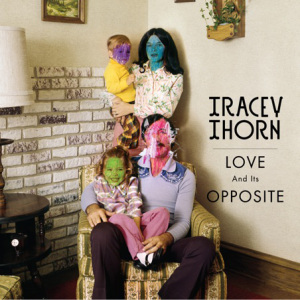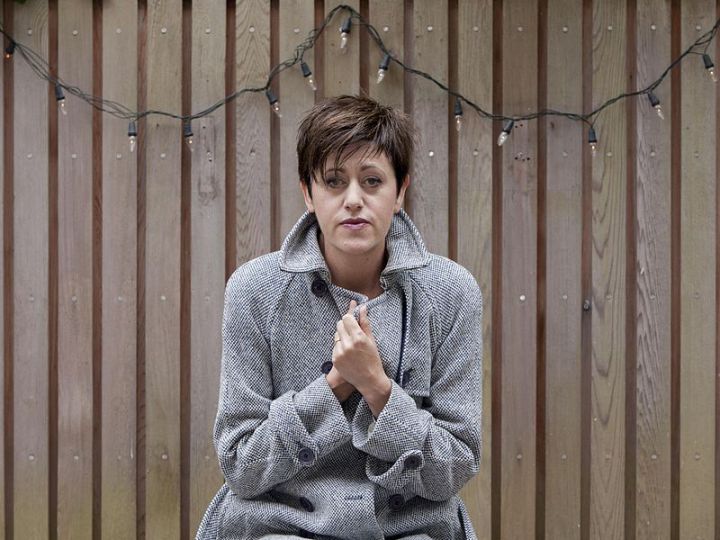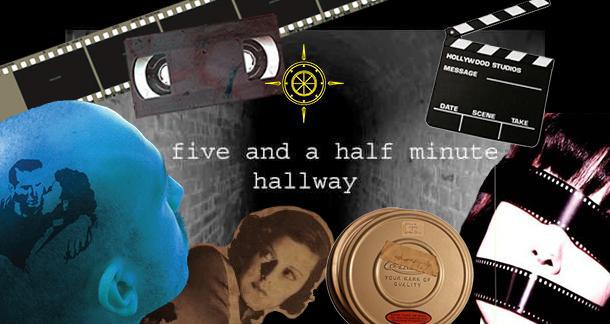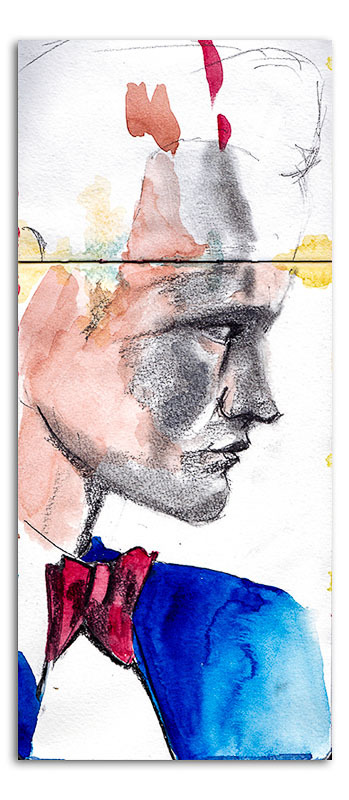 Listen to this track by former Everything But The Girl vocalist, singer-songwriter, and columnist Tracey Thorn. It’s “Oh! The Divorces”, the lead track off of her 2010 solo record Love And Its Opposite. That record was the second release of the century from Thorn, preceded by 2007’s Out Of The Woods, and representative of a new phase in her career as a singer and songwriter.
Listen to this track by former Everything But The Girl vocalist, singer-songwriter, and columnist Tracey Thorn. It’s “Oh! The Divorces”, the lead track off of her 2010 solo record Love And Its Opposite. That record was the second release of the century from Thorn, preceded by 2007’s Out Of The Woods, and representative of a new phase in her career as a singer and songwriter.
By this time, she’d spent a decade raising her kids with her partner Ben Watt, also formerly of EBTG and an active solo artist in his own right. She’d given up touring as a live performer by 2000, a part of her career that she’d never really enjoyed fully, and embraced a new avenue of expression through her regular column Off The Record in The New Statesman and as a writer of books. Yet her pursuits as a singer remained. And what a singer! For an artist known for her appealingly unadorned voice, I think a mistake that’s easily made with Thorn is to link her songwriting to that same approach, to assume that she’s always telling her own literal story when she sings.
This dynamic plays into an area that has forever fascinated and befuddled many a music writer, critic, and casual listener; the difference between what a singer expresses in song, and what that same singer really thinks, feels, and directly experiences in their private lives. With this tune, there are a number of elements to throw us off of the trail between the meaning of the song, and its effects on us as listeners.
I first heard Tracey Thorn on The Style Council track “The Paris Match”, a distinctly sultry and melancholic tune that her voice really brings to life. I think the thing I loved most about her voice, and still love now, is that she sounds like a person who’s in the room with you as you listen. You can virtually hear the contours of her face as she enunciates the words; a slight lisp, the hint of an underbite. Every note and word she sings seems to be completely attached to who we might perceive her to be as a person. The song becomes her.
In some ways, “Oh! The Divorces” really is a statement about the singer in an indirect way. She has said that this album was about the person she was at the time she wrote it and about the people around her; “about real life after forty”. Many of us went away thinking that a song about divorces delivered in Thorn’s indigo-coloured and very believable voice must be strictly about her own relationship, even if the lyrics point in various directions away from that idea.
This is not to mention the album title itself; Love And Its Opposite. That’s an even better title than Blood On The Tracks in the crumbling relationship stakes. But there’s a quite a big difference between writing a song about your personal life, and writing one about your perceptions of what’s around you in the phase of life in which you find yourself. Both may be honest expressions about where you are as a writer. But, sometimes we listeners trip ourselves up somewhere between hearing the song and really listening to it, between the way a voice makes the song sound to us, and what is really being said. Maybe we do it on purpose sometimes too, attaching themes and and ideas to the voice who delivers them so as to avoid applying them to own lives. Stories and storytelling can be dangerous that way.
 Tracey Thorn, 2012 (image: Edward Bishop)
Tracey Thorn, 2012 (image: Edward Bishop)
That’s the thing. As a songwriter, Tracey Thorn is a dedicated storyteller. Even a song like “Missing”, arguably the most recognizable track she’s ever been involved with, is less a diary entry and more of a short story when you really listen to it. That’s what this song is, too. It’s actually more like a compendium of stories depicting people who are also in their forties like the singer herself, with changing perceptions and priorities. It’s a comment on how disorienting it can be to wake up and realize that you’re middle-aged and that things have changed faster than you realized. That’s my takeaway with this song; that it’s easy to get lost in our lives and lose hold of our relationships in the process. So, it happens a lot. Who’s next? Who’s next?
Tracey Thorn’s voice is like a guide through this uncertain thematic landscape. Her clear, in-the-room-with-you vocal quality brings everything into focus, maybe even a little uncomfortably, in just how real her voice is making those stories and the emotional content they hold pretty real, too. It’s an example of the alchemy that we treasure so much in all the music we love that makes it more than the sum of its parts. It’s certainly an effect that evokes a larger question about the act of singing itself, the act of listening to someone sing, and the layers of truth that a performance can reveal to us, or obscure.
For an even more intimate version of this song, check out this “at home” live version.
Also, to delve deeper into the themes of singing, identity, intent, and truth, be sure to find a copy of Tracey Thorn’s book Naked At The Albert Hall that explores these themes extensively and with great insight. Amazingly and delightfully, your humble host here at The Delete Bin is referenced in the bibliography and is quoted in the text in chapter eight. It’s certainly been a long journey since I first heard and loved “The Paris Match”!
And of course, also be sure to visit traceythorn.com, too. This is where you can sign up for her mailing list and, among other things, be alerted to news about her upcoming new album being recorded right now as I write this.
Enjoy!
Advertisements Share this:




